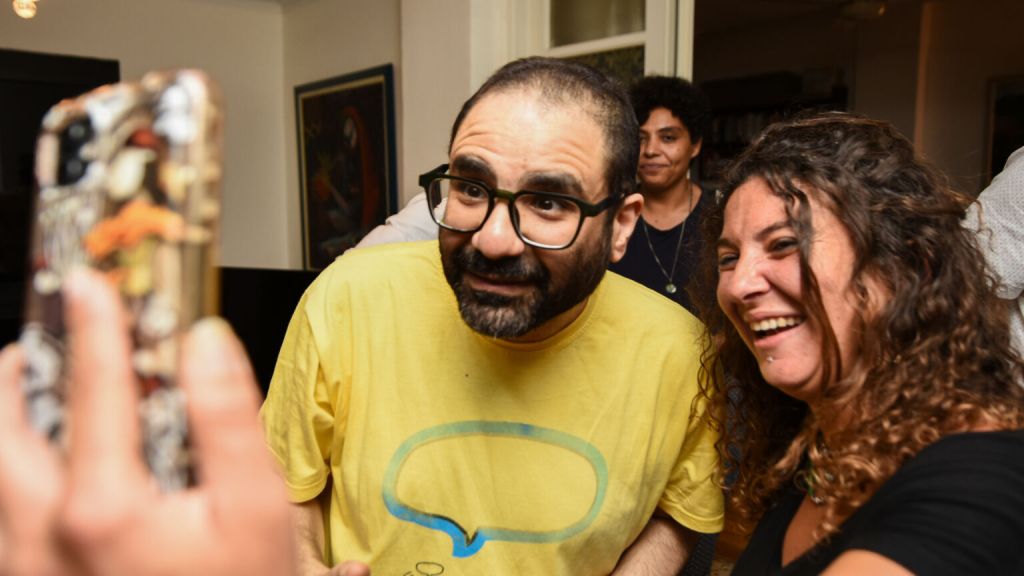I am not a Conservative by nature. My first political ideas and memberships were on the Left. I was luckily turned from that quite early by personal experience of leftist violence and intimidation. If you’re an essentially kind-hearted chap, it’s hard to align yourself with a “comrade” who is coming at you with a pick-axe handle to force you to overturn a vote.
My subsequent (and consequent) time in the Conservative Party coincided almost precisely (apart from a brief and depressing recent return over Brexit) with Margaret Thatcher’s leadership. Her assault on the “ratchet effect” in British politics, whereby every leftist innovation became settled policy protected by Conservative administrations, was radical. It stirred enjoyably ferocious opposition from the leftist establishment. It felt to a young, politically-minded chap like me, like a revolutionary cause. Because it was.
My ideological and (to be honest) intellectually-snobbish nature led me to seek academic grounding for my membership of a party supported by my loved, but not nearly trendy enough to be role models to a would-be hip young intellectual, elders. In the course of that earnest reading I found some writing that still informs my thinking (eg Hayek’s “Road to Serfdom”, Karl Popper’s “The Open Society and its Enemies”) but also one book that didn’t resonate, at least consciously, Roger Scruton’s “How to be a Conservative”.
Dan Hannan’s eulogy to his former tutor in today’s Sunday Telegraph reminds me exactly why Scruton didn’t capture my radical imagination like Thatcher, Hayek and later von Mises did. His answer to young Hannan’s question at their first meeting about the role of a conservative thinker in the modern world was
to reassure the people that their prejudices are true
That would have turned Young Tom off enough to leave the party immediately! I may have been contrarian enough — and have done enough independent reading — to join a party despised and derided by my every academic influence in the then One Party Labour North, but I had learned that in their vocabulary “prejudice” was a bad word. It would be decades before I came to understand that they were deliberately warping language in the way Orwell parodied as “Newspeak” to make it near-impossible to oppose them. What young person wants to be “anti-progressive” for example? How many pause to question whether the policies proposed by “progressives” actually represent progress? (Spoiler alert; they don’t).
So any influence Scruton’s other books had on me was, as Hannan puts it, as one of
millions of people who haven’t read them and couldn’t name their author [but] will still be unwittingly quoting them at third or fourth hand.
I suspect from the obituaries I have read this week that it’s my loss. Perhaps I should read some more of them. I certainly buy his idea (quoted by Hannan) that;
Conservatism starts from a sentiment that all mature people can readily share: the sentiment that good things are easily destroyed, but not easily created. This is especially true of the good things that come to us as collective assets: peace, freedom, law, civility, public spirit, the security of property and family life, in all of which we depend on the cooperation of others while having no means single-handedly to obtain it. In respect of such things, the work of destruction is quick, easy and exhilarating; the work of creation slow, laborious and dull.”
I fear my psychological problem with Scruton still remains that he was a proponent of Conservatism as a good thing per se when, to me, it’s only as good as the institutions and policies it seeks to conserve. Every successful revolutionary (eg those in France, America and Russia) naturally becomes a conservative once he has the institutions he wants. It would take the revolutionary overthrow (or at least a major purge and serious reforms) of Britain’s ideologically warped institutions to make them things I would fight to conserve.
A society that thinks it’s feminist to rage about rich film stars or TV presenters earning less than male counterparts while deliberately concealing the sexual abuse of young working-class girls in Manchester because racism beats both sexism and class politics in a stupid intersectional game of victimhood Top Trumps is not one whose institutions I have any desire to conserve. The revolutionary overthrow and imprisonment of the leadership of Britain’s police forces and the purging of their indoctrinated officer class is not a conservative objective in Scruton’s terms. Nor is an administrative system where a lying leftist slur on an intellectual Titan like Scruton was enough to get him “cancelled” from a government appointment by an allegedly “Conservative” minister one worth conserving.
I hope Hannan is right that Scruton’s works will be read for centuries. I hope his generation, mine and my children’s will have been radical and revolutionary enough for there to be something in future Britain for his readers to apply his ideas to conserving








Leave a comment